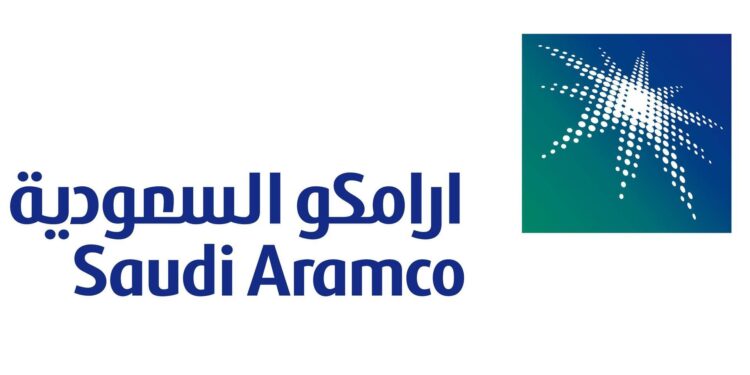In a strategic move to bolster its economic diversification efforts, Saudi Arabia has announced the transfer of additional shares of its state-owned oil giant, Saudi Aramco, to the Public Investment Fund (PIF), the kingdom’s sovereign wealth fund. This significant transaction underscores the government’s commitment to enhancing the PIF’s capabilities in generating returns that will support its ambitious Vision 2030 reform plan. As the world’s largest oil producer, Saudi Aramco remains a linchpin of the Saudi economy, and the latest transfer reflects an ongoing effort to tap into the wealth generated by oil revenues to fund diverse investments both domestically and internationally. This article explores the implications of this transfer for Saudi Arabia’s economic landscape and the future role of Aramco within the PIF’s portfolio.
Saudi Arabia Deepens Sovereign Wealth with Increased Aramco Share Transfer
In a strategic move signaling its commitment to bolster national investment capabilities, Saudi Arabia has executed a significant transfer of shares from its national petroleum company, Aramco, to its sovereign wealth fund, the Public Investment Fund (PIF). This initiative is part of the kingdom’s broader economic diversification plan, aimed at reducing its dependence on oil revenue and fostering growth in various sectors. The recent share transfer underscores the government’s efforts to enhance the PIF’s portfolio, providing it with the resources necessary to invest in both domestic and international ventures.
The implications of this transfer extend beyond immediate fiscal benefits. By increasing the PIF’s stake in Aramco, Saudi Arabia is not only solidifying its financial stability but also positioning itself to capitalize on the global energy transition. Analysts project that these shares will strengthen the fund’s capacity to invest in transformative projects, aligning with the kingdom’s Vision 2030 framework. Key benefits of this transfer include:
- Increased Financial Leverage: Enhanced capital for high-value investments.
- Diversification of Investment Portfolio: A broader range of assets across sectors.
- Long-Term Strategic Growth: Strengthening the economic resilience amidst fluctuating oil prices.
Strategic Implications of Aramco Holdings for National Economic Diversification
The recent transfer of Aramco oil shares to Saudi Arabia’s sovereign wealth fund marks a crucial turning point in the nation’s economic strategy. This maneuver aligns with the Kingdom’s Vision 2030, aimed at reducing its reliance on oil revenues and fostering a more varied economic landscape. Key implications of this strategic transfer include:
- Increased Investment Capacity: The infusion of Aramco shares into the Public Investment Fund (PIF) will enable more substantial investments in diverse sectors, ranging from technology to tourism.
- Market Stability: Strengthening the PIF with robust assets like Aramco shares can enhance the Kingdom’s financial stability, making it more resilient against global oil market fluctuations.
- Attracting Foreign Direct Investment: A strengthened PIF may also serve as an appealing partner for international investors, encouraging capital influx into various industries.
This shift not only signifies a transformation in asset management but also reflects a proactive approach to generate alternative revenue streams. As the sovereign wealth fund diversifies its portfolio, crucial sectors such as renewable energy and technology innovation could see an uptick in funding, ultimately bolstering the Kingdom’s economic foundation. An analysis reveals potential sectors that could benefit from this diversification:
| Sector | Potential Benefits |
|---|---|
| Renewable Energy | Investment in sustainable technologies and reduced carbon footprint. |
| Tourism | Development of leisure infrastructure and job creation. |
| Technological Innovation | Support for startups and tech development fostering economic growth. |
Recommendations for Optimizing Investments through the Public Investment Fund
As Saudi Arabia continues to streamline its investment strategies through the Public Investment Fund (PIF), several key approaches can enhance the efficacy of its asset management. The country should consider adopting a diversified investment portfolio that incorporates sectors showing growth potential. By focusing on technology, renewable energy, and infrastructure, the PIF can mitigate risks associated with oil price volatility and benefit from emerging markets. Establishing strategic partnerships with global firms can also amplify resource access and expertise, enabling a more robust financial framework.
Investment transparency should be prioritized to attract foreign investors and bolster confidence. Key recommendations include:
- Implementing regular reporting mechanisms on fund performance and investment strategies.
- Enhancing governance frameworks to ensure accountability and risk management.
- Engaging in proactive stakeholder communication to outline the long-term vision and objectives.
Furthermore, conducting feasibility studies and market analyses will position the PIF to capitalize on lucrative opportunities. A strong emphasis on sustainability practices across investments will not only align with global standards but also resonate with a growing pool of socially conscious investors.
To Conclude
In conclusion, Saudi Arabia’s strategic transfer of additional shares from Aramco to its sovereign wealth fund marks a significant step in the kingdom’s efforts to diversify its economy and bolster its financial reserves. As the nation seeks to reduce its reliance on oil revenues, this move underscores the importance of investing in sustainable growth and development initiatives. The ramifications of this decision will likely extend beyond immediate financial gain, reinforcing the kingdom’s commitment to Vision 2030. Stakeholders, both domestically and internationally, will be keenly observing how these transitions impact the broader energy market and the future of Saudi Arabia’s economy.














